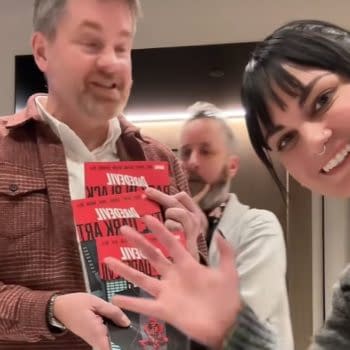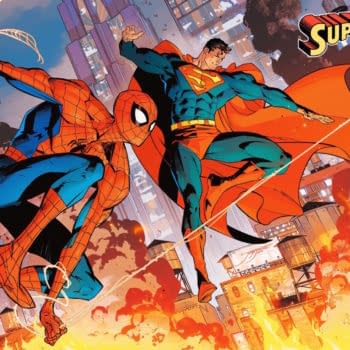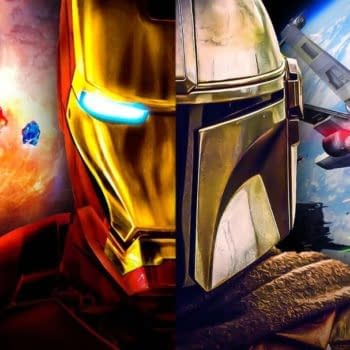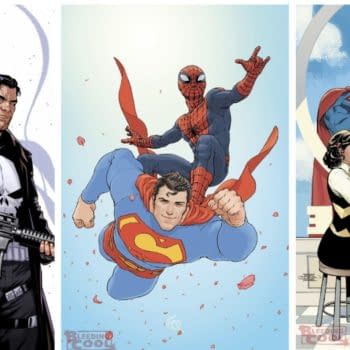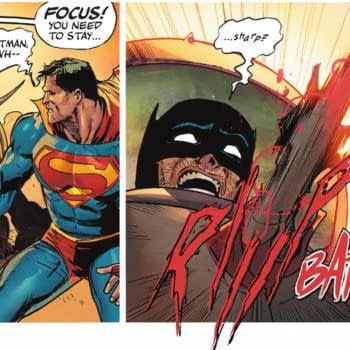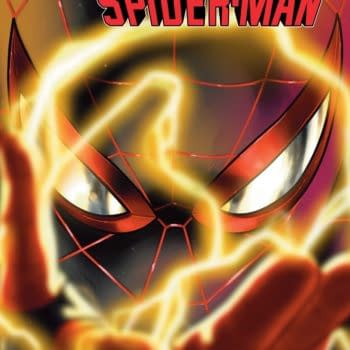Posted in: Comics | Tagged: Comics, entertainment, image, Kelly Sue De Connick, kurt busie, matt fraction, portland, powells
Does Creator Owned Have To Be Vs. Work For Hire? 6 Image Creators At Powells Of Portland
Former Bleeding Cool EIC Hannah Means-Shannon continues her comic book adventures in Portland as a new hire at Dark Horse Comics. Check out her latest adventures on Tumblr. She writes,
When a group of six comic creators working on projects published by Image sat down on a Saturday afternoon at 4pm in Powell's Books, they had a packed house. And that was due, in part, to the fact that Portland is a comics town, as was addressed later in the panel. But it's also due to the strength and reach of the projects these folks work on, and it's not surprising that their reader-facing way of creating comics leads them to engage with fans through public dialogue.
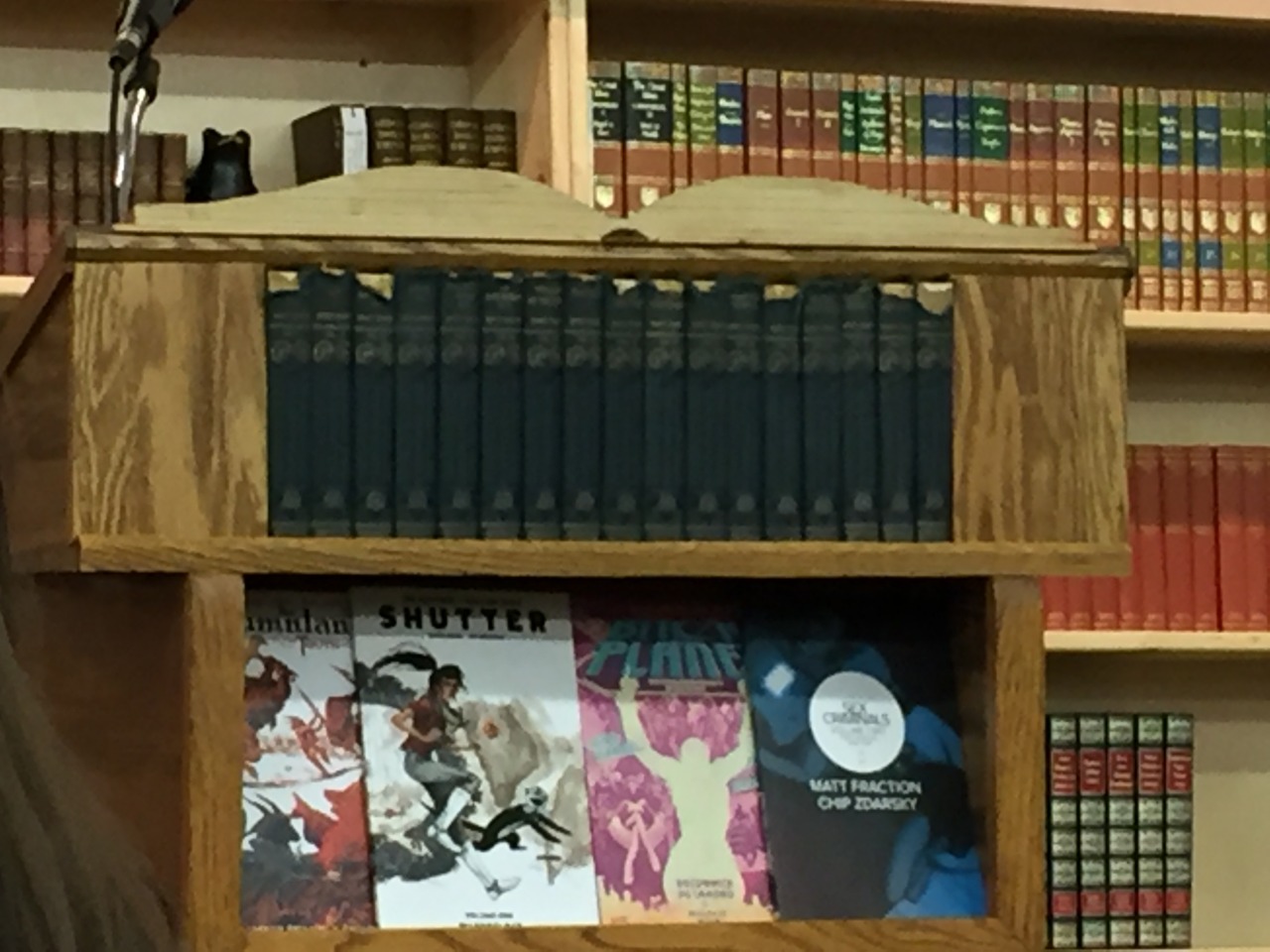
Joe Keatinge and Leila Del Duca (Shutter), Matt Fraction and Kelly Sue DeConnick (who run Milkfed Criminal Masterminds, and are working on Sex Criminals and Bitch Planet respectively), and Kurt Busiek and Ben Dewy (Autumnlands) kept the audience entertained for more than 90 minutes discussing a variety of topics, some from host Kit Cox, and some from audience Q&A.
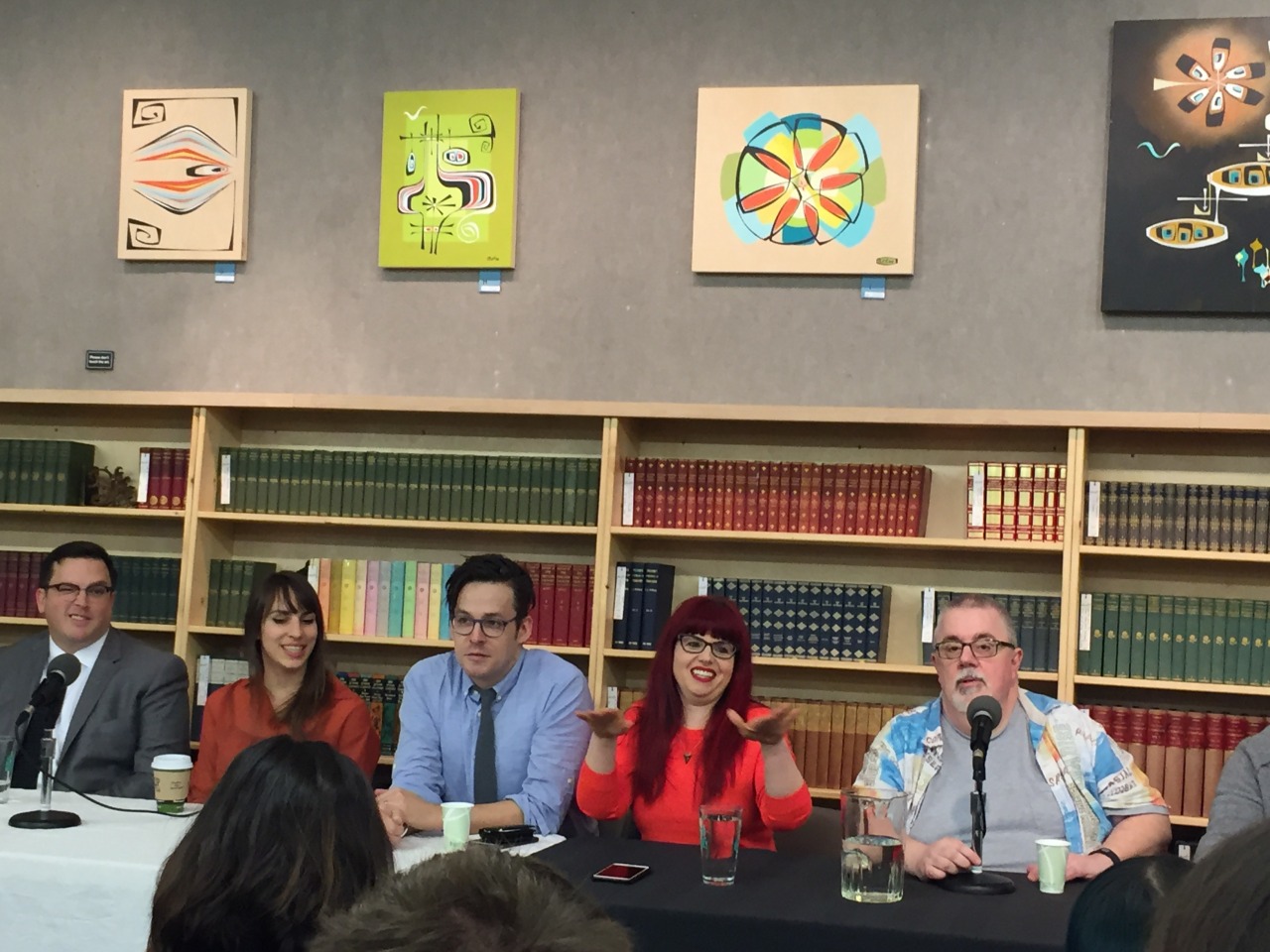
If you know anything about any of these comic creators, you can probably predict that the tone of the panel was outspoken, irreverent, at times radically honest, and profane with plenty of comedic timing. It would be difficult to relate everything that came up in the flow of conversation, and even harder to organize it neatly by topic, but I'm going to derail from talking about all the topics that came up to focus on one:
The relationship between working for the Big Two and working on Creator Owned projects from the perspective of the creators.
This is a topic that I've seen addressed in different ways and from different angles with increasing frequency at conventions and shows in my time in journalism. I always found it interesting and wanted to hear what creators had to say, because this is an invaluable time to "talk shop" and for people to simply relate first-hand positive and negative experiences. However, most of the panels I've attended on the subject were either extremely anti working with the Big Two based on bad experiences (and those are incredibly helpful to young creators to hear) and those which are extremely pro working for the Big Two (which is also useful in its own way and can show what opportunities are out there in comics).
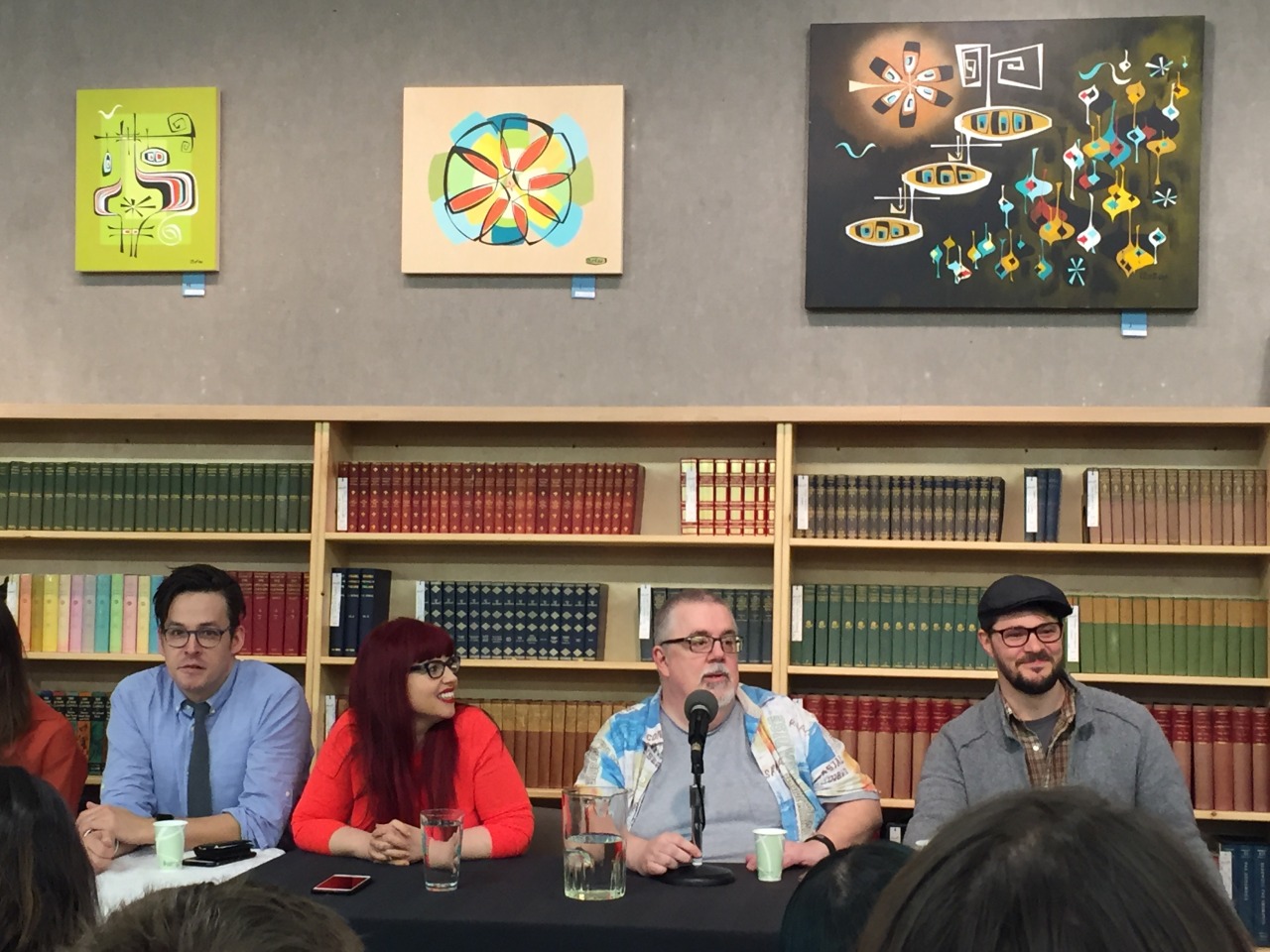
This panel was probably the most balanced conversation I've ever heard about the two sides of the coin when it comes to comics. Because most of the creators present had experience of both types of work, and could compare notes together, it was very in-depth and steered clear of authoritarianism about what creators should or should not do in their careers.
The comparison made, which Matt Fraction and Kelly Sue DeConnick said had been used by Fraction elsewhere previously, bears repeating. They likened working on legacy properties at the Big Two to working as a musician in a cover band. You are provided with the music to interpret, the instruments to do it, and sometimes those are legendary instruments you can't wait to get your hands on, but at the end of the day, you can't take those instruments home, and were only able to express changes to the music in limited ways. Your still playing The Beatles in a cover band. But the tone of that statement wasn't perjorative. It's the Beatles. The music can be outstanding and stand the test of time.
Conversely, working on a Creator Owned project is like playing with your own band in your "shitty garage" and being responsible for instruments, band mates, promotion and the like. It might go nowhere, but it means something to you, of course, and it's all in your hands to pursue. The implication there is that you might come up with something really astonishing, too, steeped in originality, though I'm adding that observation myself.
But an important thing which resonated strongly with me about the tone of the panel, was the sentiment that in a community like comics, it's no longer kosher to judge people for deciding one path or the other, whether as a temporary phase in their career, or a more permanent trajectory.
My thoughts on the subject are as follows: for a long time, Creator Owned properties were looked down on upon by mainstream comics, and struggling self-starter creators might have been referred to as "only" working on a zine or a xeroxed pamphlet of their own. They were never going to "break in" to comics or make it into a career path. Now we are in the midst of a Creator-Owned movement, pretty perfectly embodied by this group of creators who gathered at Powell's to talk about their work. But now there is also some danger of creators passing judgement on each other, or even readers passing judgement on comic creators, based on their own preferences. If they hold purely original story concepts as their ideal, then the indie creators garnering readership through self-publishing or a publisher like Image are viewed as standing in a white heat of creative virtue. This cult of originality goes way back in creative culture, as celebrated by the Romantic poets. That reverence is understandable since it's where our new ideas come from that can build a better future for humanity, essentially.
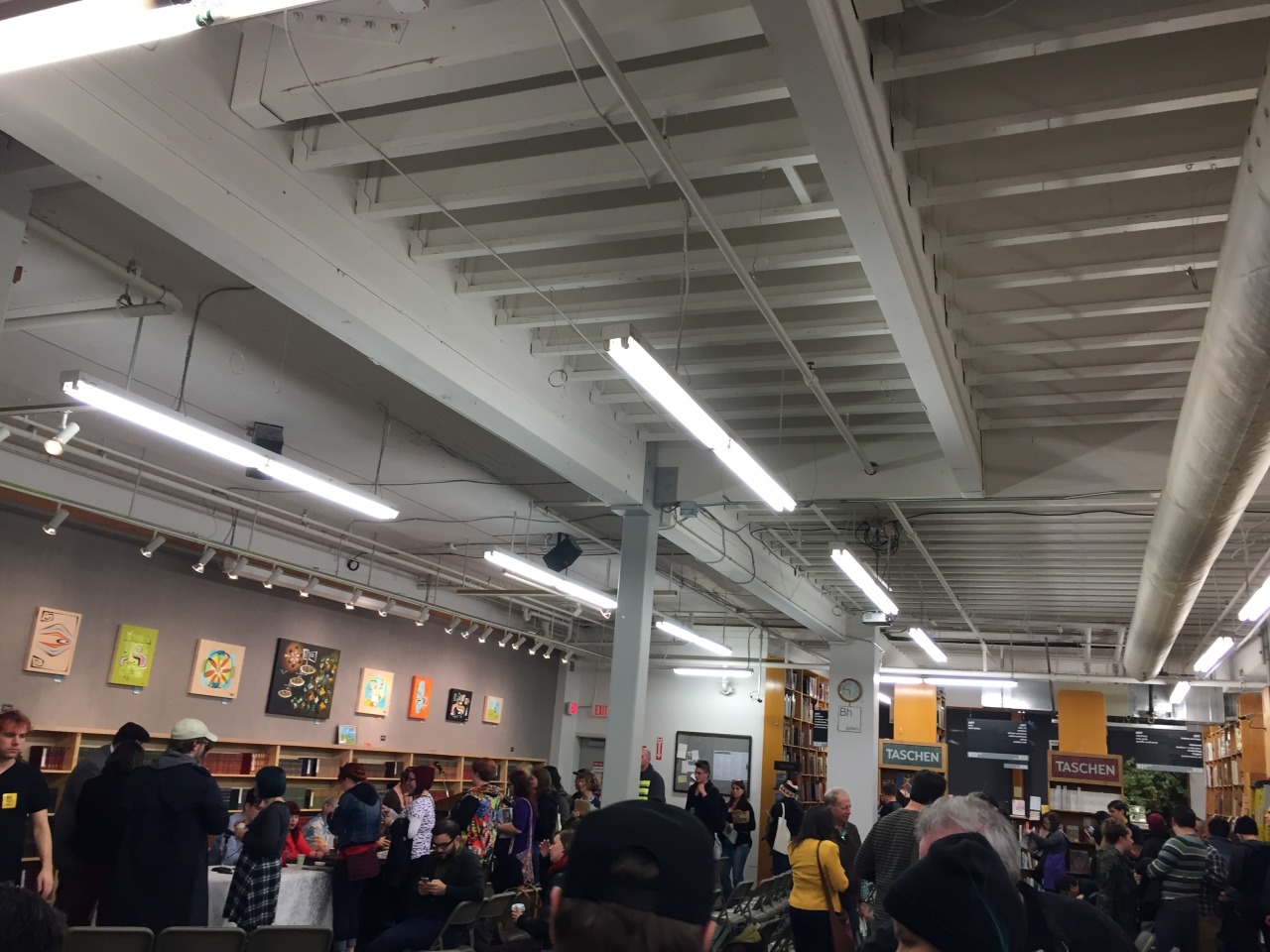
If the another creator or reader understands the difficulty of achieving elements of change or new characterization within superhero comics, then they look to creators who are managing that and see them as great architects within an established system. And working within a system that large and with such a massive fanbase means that hearts and minds can be reached and influenced by remarkable feats of storytelling. But what has changed is that those who revere Big Two creators are actually no longer really able to look down on the creators working on indie projects because Image is now so expansively successful and present in the market. So, to cut to the chase: things could get a little lop-sided in terms of treating creators fairly. Indie creators are now getting the recognition they deserve. So how, in turn, will indie creators react and respond to those working for the Big Two?
Maybe you're waiting for me to say, "Well, they are the same people, though". Often they are. Really often they are these days. And yet, it's no secret that many indie creators have had experiences working with the Big Two and don't want to go back. Fraction and Busiek, for instance, in the panel, seemed a little more serious than others in saying indie projects were highly preferable. I think there's another dichotomy here that reveals that things are slightly imbalanced. When a mainstream creator turns to do a Creator Owned project, they are going to have a hard time being taken seriously in indie comics initially. Engaging a different community will take some doing. If an indie creator, however, goes to do a short series, or even a larger one, in mainstream comics, I haven't heard a lot of judgmental things being said about it. In fact, there are often wildly supportive reactions as if the indie community as a whole has accomplished something. The indies are injecting some much needed input into the mainstream.
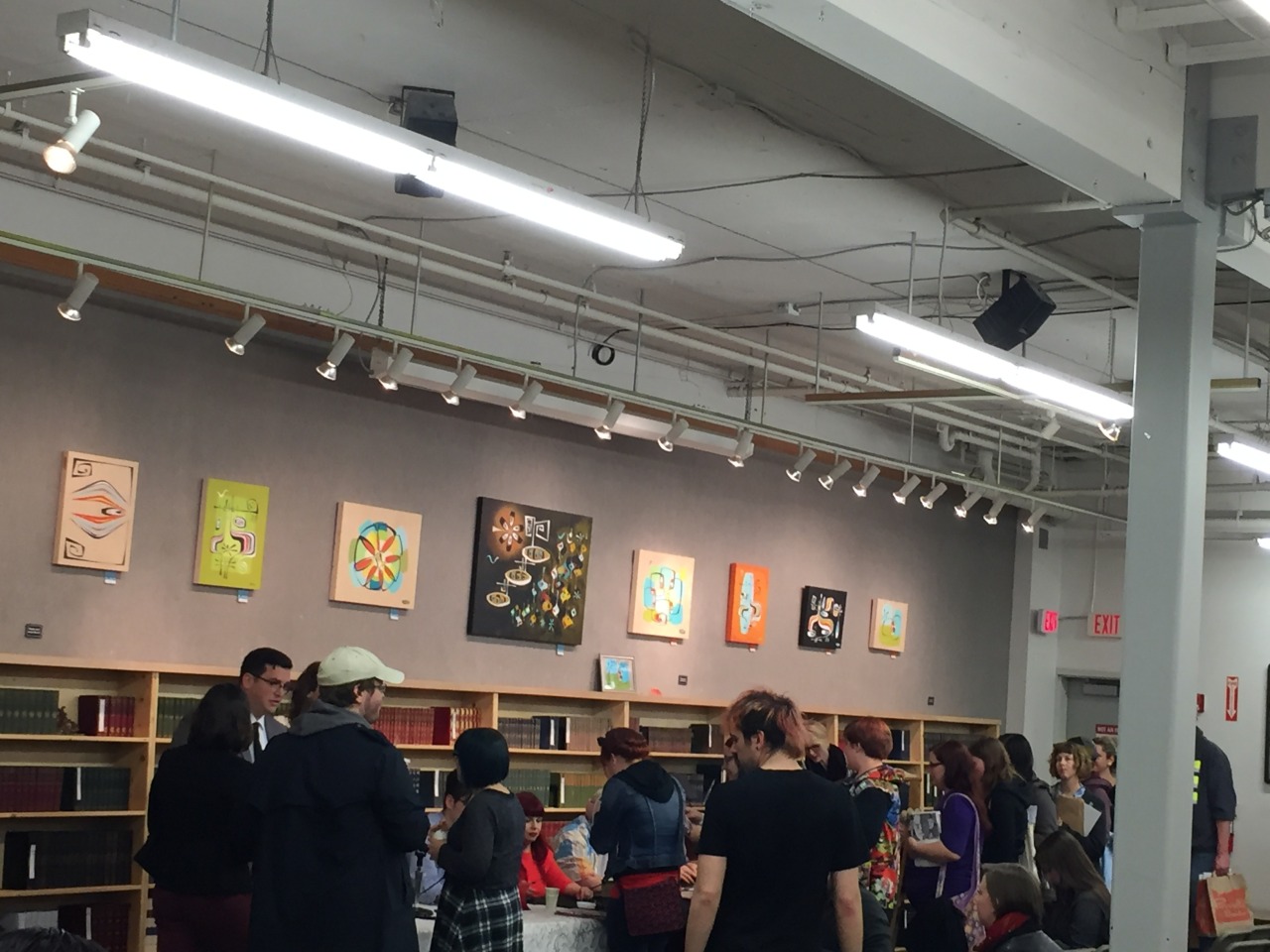
So, what's the upshot of all this? Working for the Big Two has some negative connotations in the indie community. Working in indie comics no longer has negative associations for those working in the mainstream. We are not quite there in balancing this equation of how the comics community can come together as a whole to support the medium and the creators.
The reality is that very few comic creators are exclusive these days, even if they work for the Big Two. Most creators are simply freelancers, living their lives from one project to the next, or maintaining day jobs and slowly working on their beloved comic. Many comic studios contain people working on a Creator Owned project right alongside their studio mate who's working on something for the Big Two. Those environments can teach us something. Maybe it's just a matter of time until they do. The more diverse comics become in content and subject-matter, the more differences in readership are represented and engaged, the less these divisions are going to matter.
Then there will still be the bedrock of necessity for someone working in any artistic field, as DeConnick said toward the end of the panel: get a lawyer and get a contract. Every creator needs to look out for themselves in any kind of publishing process. That kind of advice also reveals the great leveling effect of working in a medium: there's not much to be precious about when you care about an art form and are trying to keep it alive through good input.
The panel was relentlessly entertaining and thought-provoking, and the creators were very flexible in taking on the topics that the audience members brought up, though some of the Q&A did circle back to this relationship between Creator Owned work and the Big Two. It's one I hope to see addressed as openly in such a balanced way more often.






